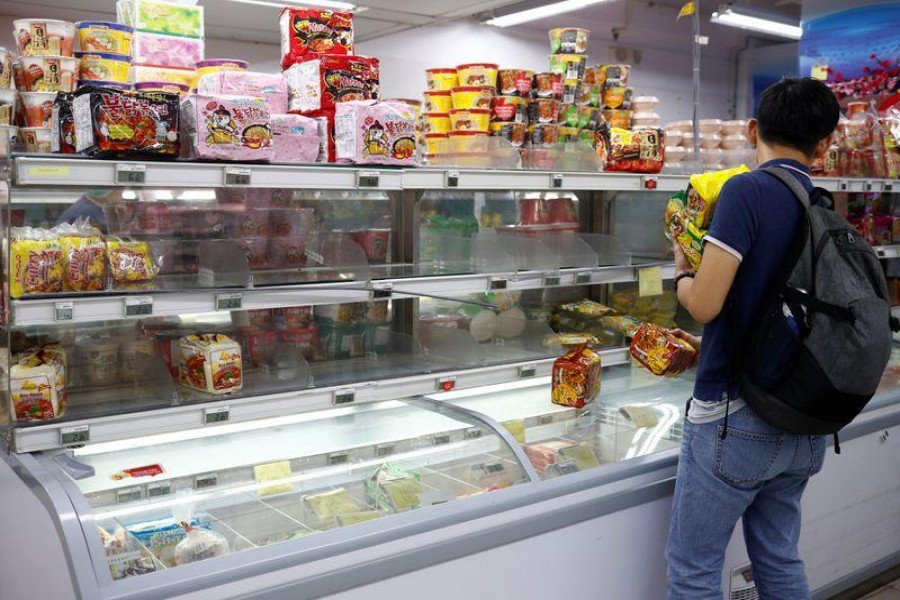Singapore on Friday raised its coronavirus alert level and reported more cases not linked to previous infections or travel to China, a move that sparked panic-buying of essentials in some shops across the island.
As Singapore’s infected tally hit 33, the alert level was raised to orange - a level reached during the 2003 Severe Acute Respiratory Syndrome outbreak and the 2009 H1N1 influenza which indicates the virus is severe and passes easily between persons.
With the disease reviving memories of SARS which killed more than 30 people in Singapore and hundreds worldwide, shoppers started clearing shelves of toilet paper, noodles and rice, and formed long queues in supermarkets across the island on Friday evening, videos posted on social media showed.
“I understand that people are concerned after the announcement this afternoon. However, we must...not hoard items unnecessarily. This will create undue panic and is unhelpful to the situation at hand,” trade minister Chan Chun Sing said in a Facebook post about the panic buying.
Singapore’s highest alert level is red, which indicates the virus is spreading widely and can result in major disruption such as closing schools, reports Reuters.
“As there are now a few local cases without any links to previous cases or travel history to China, we have stepped up our risk assessment,” the health ministry said announcing the new orange alert level on Friday.
It also said firms should be prepared for “widespread community transmission” and advised that non-essential large-scale events should be deferred or cancelled.
The Singapore Airshow will go ahead next week although organisers may limit public visitors, it added.
Of the new cases reported on Friday, one was a teacher and authorities said all students and staff who had come into contact with her would have to spend two weeks at home.
A British man has also contracted the coronavirus after travelling to a business meeting in Singapore which has also been linked to cases in the city-state, Malaysia and South Korea, health ministry official Kenneth Mak said.
Mak said authorities had not yet identified the source of infection at the meeting of more than 100 employees from an as-yet-unnamed firm at the Grand Hyatt Hotel in mid-January.
With evidence of local transmissions in Singapore mounting, people appeared to be taking no chances.
“People are not sure what the raised virus alert means and are stocking up food items and other essentials. There is somewhat of a mass hysteria,” said a 45-year-old tech executive who said he spent over an hour lining up at outside his neighbourhood grocery store.


